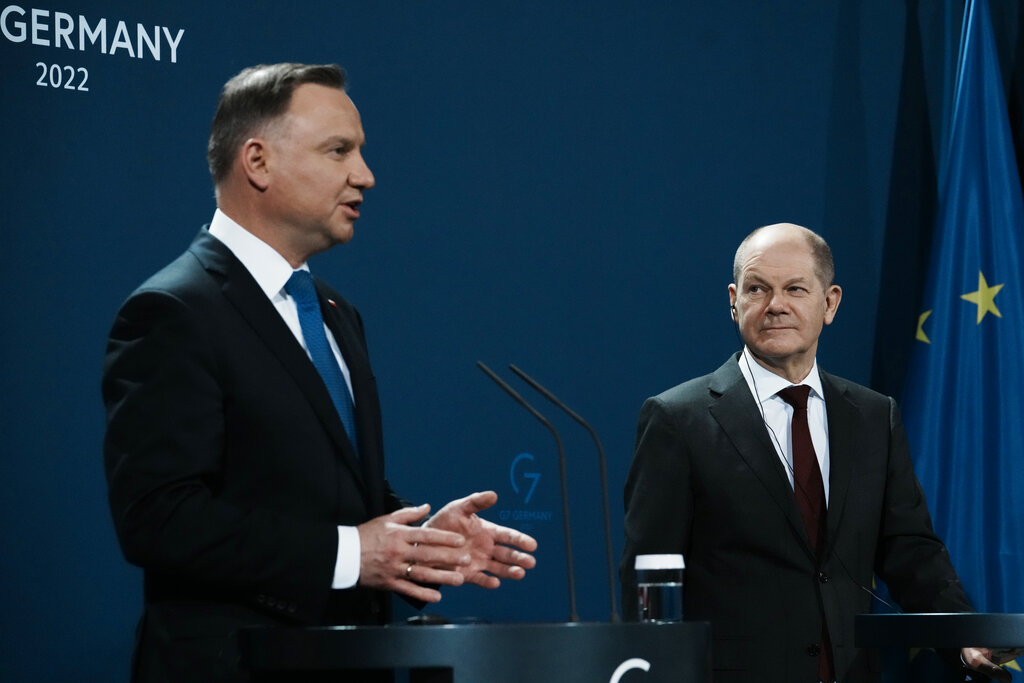Polish President Andrzej Duda said he believes that the campaign to use qualified majority voting for most decisions made by the European Council is contrary to the interests of the European community as a whole and represents what he described as German blackmail.
German Chancellor Olaf Scholz on Tuesday told MEPs in the European Parliament that issues such as EU foreign and tax policy should be decided by qualified majority voting. He said that it was not unanimity but majority voting that was a sign of democracy.
Scholz hinted that any German agreement to the further enlargement of the EU depended on such a reform being implemented.
Duda was asked about Scholz’s remarks during the Polish head of state’s press conference during his visit to Albania. He said that Chancellor Scholz is only too well aware that the way decisions are taken in the EU is the subject of ongoing debate in which there is no consensus at present.
Duda stated that “it would be wrong for any member state to blackmail the rest and also the EU candidate countries by saying that if its demands for hegemony are not met, they will block further enlargement of the community.”
He went on to say that blocking enlargement would be contrary to the interests of the entire EU and that bearing in mind the trauma of Brexit, the community needs to demonstrate to the world that it is still a vibrant and attractive project.
The Polish president noted that the EU’s founding principle was one of brotherhood and cooperation to secure peace and economic development.
For that to be possible, Duda said that all “countries must have a say over key matters with regard to the development of the community, so that they feel there is justice within the community and no country imposes its will at the cost of others by taking advantage of institutional instruments.”





